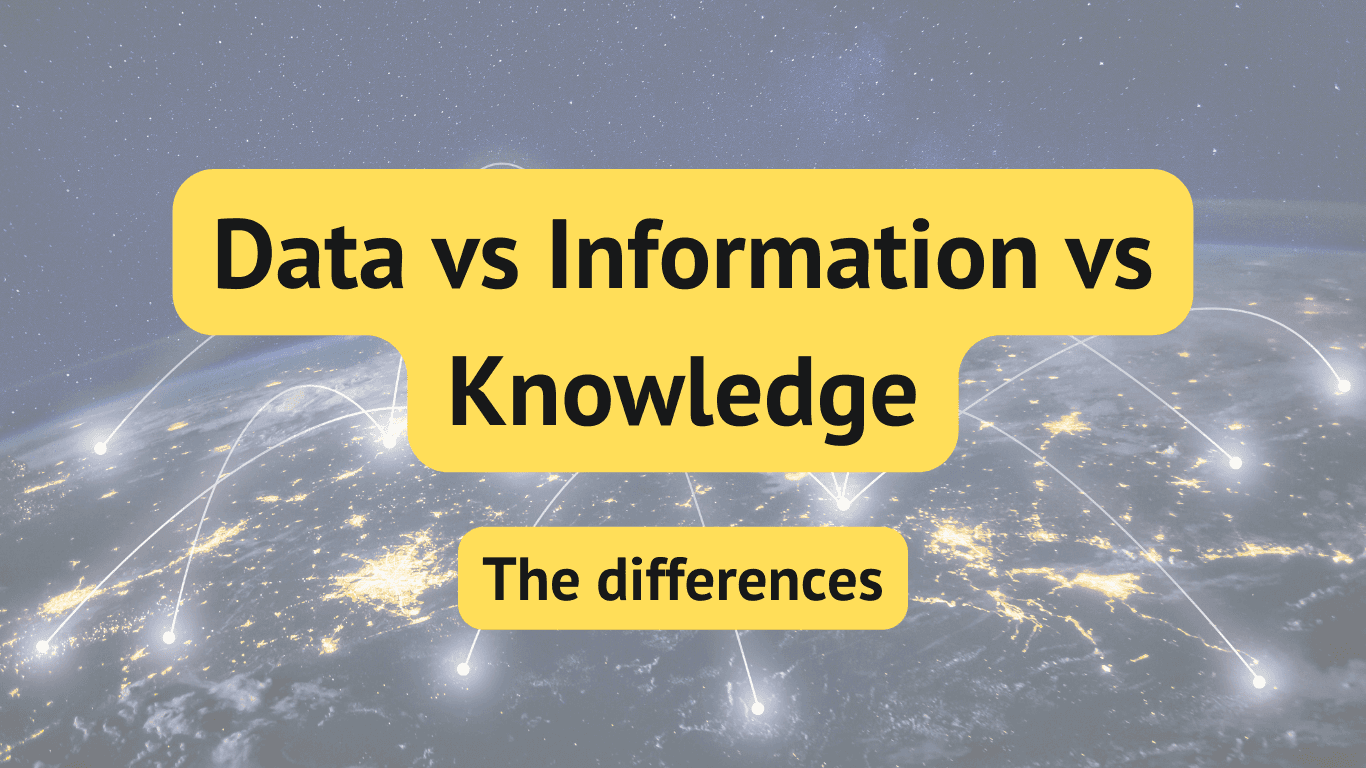
Data, Information, and Knowledge: Understanding the Differences
Data, information, and knowledge are three commonly used terms in the world of technology, business, and scientific study. While they might seem synonymous, they possess distinct definitions and implications. This article will delve into these terms to significantly differentiate between data, information, and knowledge, and explore their interrelationships.
Defining Data, Information, and Knowledge
Data
Data represents the raw facts and statistics collected during the operations of a business. Usually fragmented and unstructured, data in itself does not provide significant meaning but forms the building blocks that can be converted into information and further into knowledge.
Information
Data becomes information when it is processed, organized, structured, or presented in a given context to make it useful. Information interprets the data, making it understandable and actionable. For instance, data points, when analyzed and interpreted, can provide valuable information about customer behavior, market trends, and more.
Knowledge
Knowledge is the understanding and awareness gained through experience or education. It is assimilated information that has been processed in the human mind and includes context, interpretation, and reflection. When you apply or utilize the information, it becomes knowledge.
Expounding the Differences
1. Data vs Information
While data is raw, unprocessed, and without context, information gives meaning to the data. Information, therefore, is processed data, structured and made ready for interpretation and application.
2. Information vs Knowledge
The distinction between information and knowledge lies in comprehension and utilization. While information provides descriptive and organized data, knowledge implies a thorough understanding and application of that information, often paired with personal experience or intuition.
3. Data vs Knowledge
Knowledge is a comprehensive level beyond both data and information. While data is the raw material, knowledge is the refined product - the understanding that comes from interpreting and applying information derived from the data.
Conclusion
Data, information, and knowledge are closely linked yet distinct concepts that form a crucial part of decision-making processes in businesses and research. Understanding their differences can enable businesses to effectively transform raw data into valuable insights and actionable knowledge.
